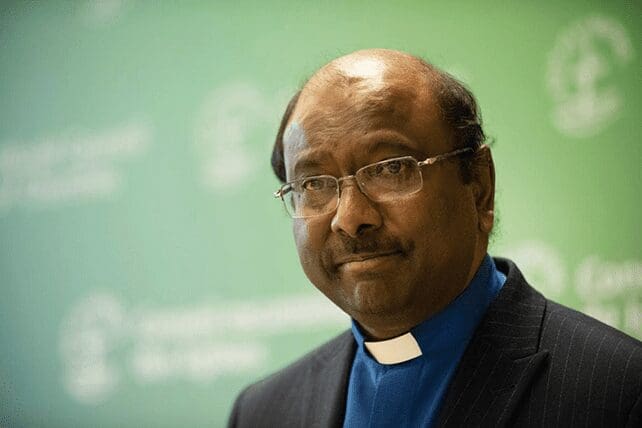Comparisons between South African apartheid and the occupation of the West Bank, long invoked by Palestinian activists, have increased since at least 2007, when former President Jimmy Carter drew criticism for titling a book on Israel “Peace Not Apartheid.” The late Desmond Tutu, a South African archbishop renowned for his work as an anti-apartheid activist, also sparked pushback for invoking the comparison later in his life.
“When you go to the Holy Land and see what’s being done to the Palestinians at checkpoints, for us, it’s the kind of thing we experienced in South Africa,” Tutu told Religion News Service in 2013. “Whether you want to say Israel practices apartheid is immaterial. They are doing things, given their history, you think, ‘Do you remember what happened to you?’”
In January of last year, Israeli human rights group B’Tselem published a report describing the Israeli government as overseeing a nondemocratic “apartheid regime.” Human Rights Watch also used the word in a 2021 report accusing Israel of “apartheid and persecution.” Amnesty International followed in February of this year, releasing a report titled “Israel’s apartheid against Palestinians: Cruel system of domination and crime against humanity.”
At least one prominent Israeli has made the allusion: In February, former Israeli Attorney General Michael Benyair declared Israel “an apartheid regime.”
Jewish groups in the United States rebuked the stated clerk of the Presbyterian Church (U.S.A.), the Rev. J. Herbert Nelson, in February for characterizing the occupation of Palestinian territories by Israel as “21st century slavery.” He also referred to “dismantling apartheid” in the same speech.
On Wednesday, the PCUSA’s International Engagement Committee passed a resolution in a 28-3 vote that argues the Israeli government’s treatment of Palestinians “fulfill(s) the international legal definition of apartheid.”
An array of Israeli officials, Jewish leaders and Jewish organizations has passionately condemned the apartheid characterization, calling the term inaccurate, offensive and dangerous, saying it can encourage antisemitic views.
The Israeli foreign ministry railed against Amnesty’s report even before it was released, calling it “false, biased, and antisemitic.” The Union for Reform Judaism, the largest Jewish group in the U.S., also blasted the report and singled out its use of the label apartheid, calling it “deeply wrong.”
“It is particularly incumbent upon those of us who have condemned the Occupation as a moral travesty, advocated strongly for its end, and who have a lengthy record of advocating for the human rights of the Palestinian people including the right to self-determination, to express our profound disappointment and explicit condemnation of this report,” read the group’s statement.
In January, the Anti-Defamation League, a prominent anti-hate organization dedicated to combating antisemitism, criticized use of the label as “inaccurate, offensive, and often used to delegitimize and denigrate Israel as a whole.” The group further argued invoking apartheid is “counterproductive to resolving issues related to injustices within Israeli society or the complex Israeli-Palestinian conflict.”
This article originally appeared here.

